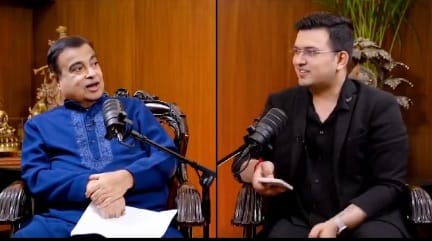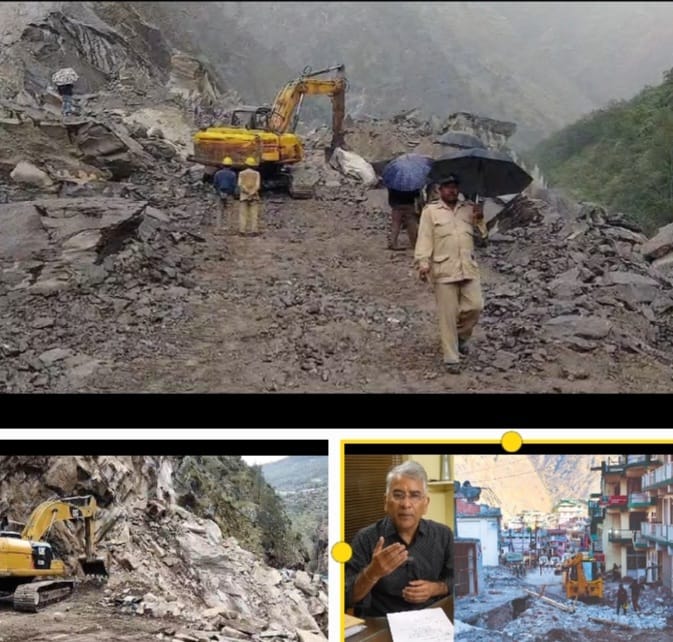Dehradun – Nitin Gadkari, the Union Minister for Road Development, is in the hot seat after bold claims about the Char Dham Yatra's success this year. NGO from Dehradun has blasted his claims on Char Dham and Auli as Davos of Uttarakhand.
An NGO from Uttarakhand, led by SDC Foundation President Anoop Nautiyal, has fired a sharp rebuttal, calling out the "misleading assertions" and warning of the fragile state of the Himalayan ecology.
The Claim That Missed the Mark
Gadkari, in a recent video, said the Char Dham Yatra saw a threefold increase in pilgrims this year. But Nautiyal isn’t buying it. The numbers, he says, tell a different story.
By November 7, 2024, 47 lakh pilgrims visited the Char Dham**, and the figure may touch 48 lakh by November 17 when the Badrinath temple closes.
Compare that to 2023's massive 56.13 lakh pilgrims, and it's clear the footfall has actually dropped by over 8 lakh.

"Far from the celebration Gadkari ji suggests, these figures point to fewer pilgrims this year despite a longer Yatra season in 2023. The **monsoon disasters** and landslides kept people away," Nautiyal explained.
Landslides, Closed Roads, and a Grim Reality
The state's monsoon woes have added 500 new landslide zones to its already battered roads. Between July 9 and July 12, the Badrinath highway alone was shut for 83 hours, stranding locals and tourists alike.
And that's not all – Kedarnath Dham was a ghost town for 19 days between August 11 and 29** after a devastating landslide on July 31. "Fewer than 5,000 pilgrims visited during that period," Nautiyal said.
Such disasters have exposed the alarming fragility of the Himalayan terrain. "Joshimath’s land subsidence earlier this year is a chilling reminder," he added, pointing to the need for restraint and foresight in development plans.
Auli Ski Resort, Davos and the Big Questions
While Gadkari dreams of turning Auli into a global skiing destination, Nautiyal urges caution.
"What’s being sold as an international attraction risks becoming an ecological disaster. The Himalayan landscape has limited carrying capacity, and these plans threaten to overwhelm it," he warned.
Auli lies atop Joshimath which had witnessed subsidence two years ago. The onslaught of vehicles through Joshimath and Au,li would mean more disaster. Auli as Davos will be a "Disaster", he cautioned.
Cultural insensitivity and ecological neglect top the NGO’s concerns.
"You can’t just build highways and resorts without considering what it does to the local community and their way of life," Nautiyal added.
Time for Sensitivity, Not Sensationalism
Nautiyal has penned his concerns to Gadkari, urging the minister to rethink his strategies.

"We need plans that respect the Himalayan ecology and its unique culture. Pothole-free roads and tourist numbers are meaningless if the mountains crumble," the letter states.
The Char Dham and Auli projects are seen as symbols of progress, but at what cost?
The NGO’s message is loud and clear: the Himalayan state doesn’t need flashy developments that trample its fragile ecosystem.
Instead, it calls for responsible tourism that balances pilgrims’ spiritual needs with the mountains’ survival.
Will Gadkari and the government get real with the issues on the ground in Char Dham and Auli?






